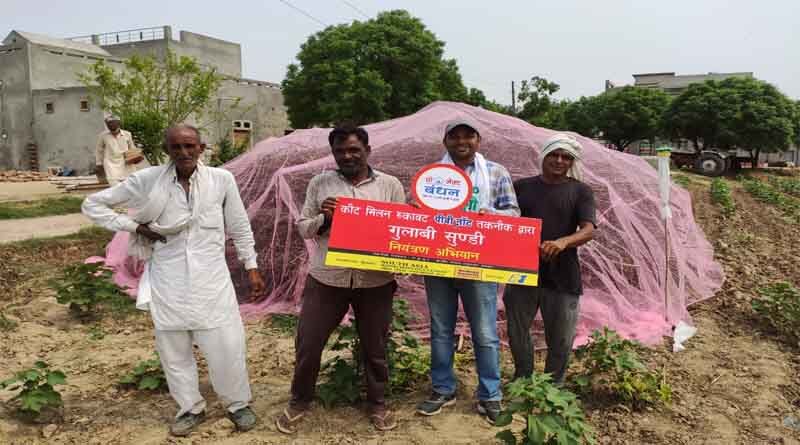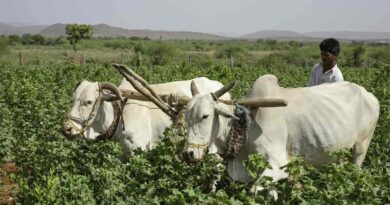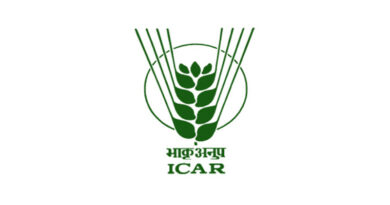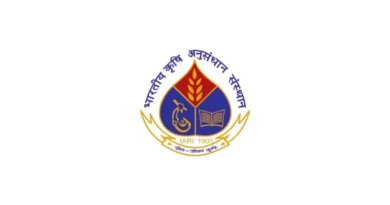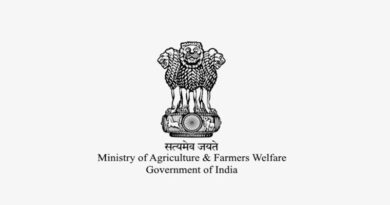Mating disruption PBKnot technology to manage Pink Bollworm in North India
12 July 2022, Bathinda: The South Asia Biotechnology Centre (SABC), Jodhpur in collaboration with Ambuja Cement Foundation (ACF), supported by PI Foundation under the technical supervision of ICAR-CICR has laid out a mega field experiment. It demonstrates mating disruption PBKnot technology to study and manage cotton pink bollworm (PBW) across northern cotton growing zone in Kharif 2022.
The large-scale field demonstrations cover around 469 acres in 7 clusters each of over 65 acres spread in 7 districts of Bathinda, Mansa and Fazilka in Punjab; Sirsa & Fatehabad in Haryana and Ganganagar and Hanumangarh in Rajasthan representing the cotton growing geography of 3 States in the North cotton growing zone.
The mega demonstration includes 8 intensive on-farm training programs to educate and train more than 650 farmers and farm labourers in all 7 geo-tagged mega cotton clusters in 7 districts with the structured tagging of PBKnot thread, intensive training of field staffs, local volunteers and state coordinators to weekly collect adult PBW moth data, rosette flower and green boll damage in order to study pest dynamics and suggest control measures throughout the season as part of an integrated pest management (IPM) approach.
In addition to tagging PBKnot in 7 clusters, the Project Bandhan distributed and installed large numbers of pheromone traps for monitoring both PBKnot treated/control clusters and neighbouring farmers and covering ‘cotton leftover’ and ‘cotton stalk’ by mosquito nets for trapping adult PBW moth before mating and hatching in all 7 PBKnot clusters.
“Mating disruption is an innovative pheromone-based technique that interferes with the reproductive cycle of PBW in such a manner that the population levels are significantly reduced and crop damage is diminished. The PBKnot dispenser releases sex pheromones to prevent male moths from finding females and mating, thus disrupting the reproductive cycle. The mating disruption has emerged as a powerful tool to manage pests such as PBW”, said Dr CD Mayee, President, South Asia Biotechnology Centre, Jodhpur.
Also Read: Summer crops growing well with scientific field management

